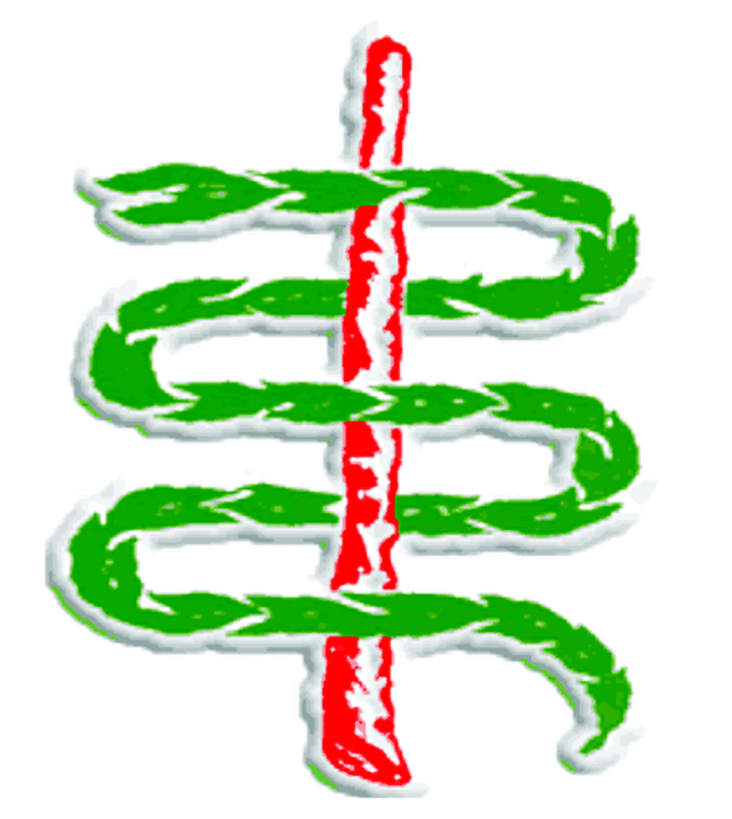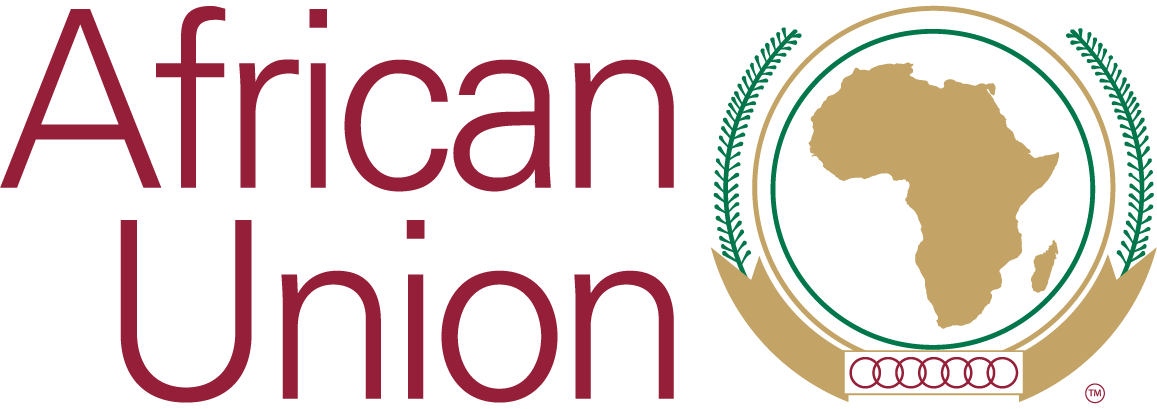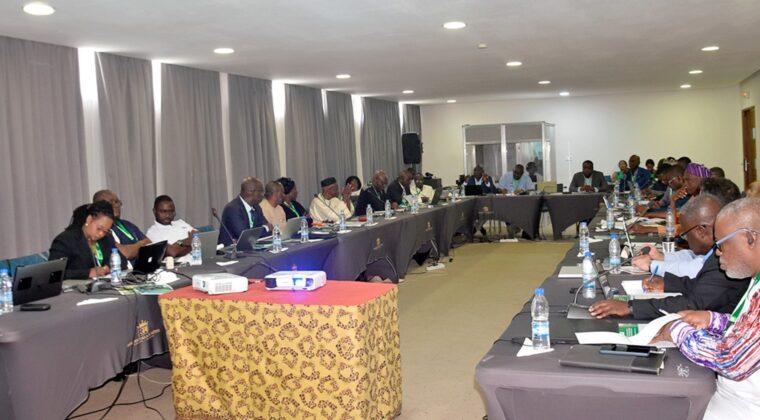A harmonized approach in pest control among various stakeholders is pivotal in sustainable pesticide management in order to achieve food security across the African continent.
This was emphasized at a just-ended two-day workshop in Grand Bassam, Côte d’Ivoire where over 30 experts from West and Central Africa subregion convened to engage and discuss diverse topics around risk assessment, mitigation and implementation of a globally harmonized system in pest control.
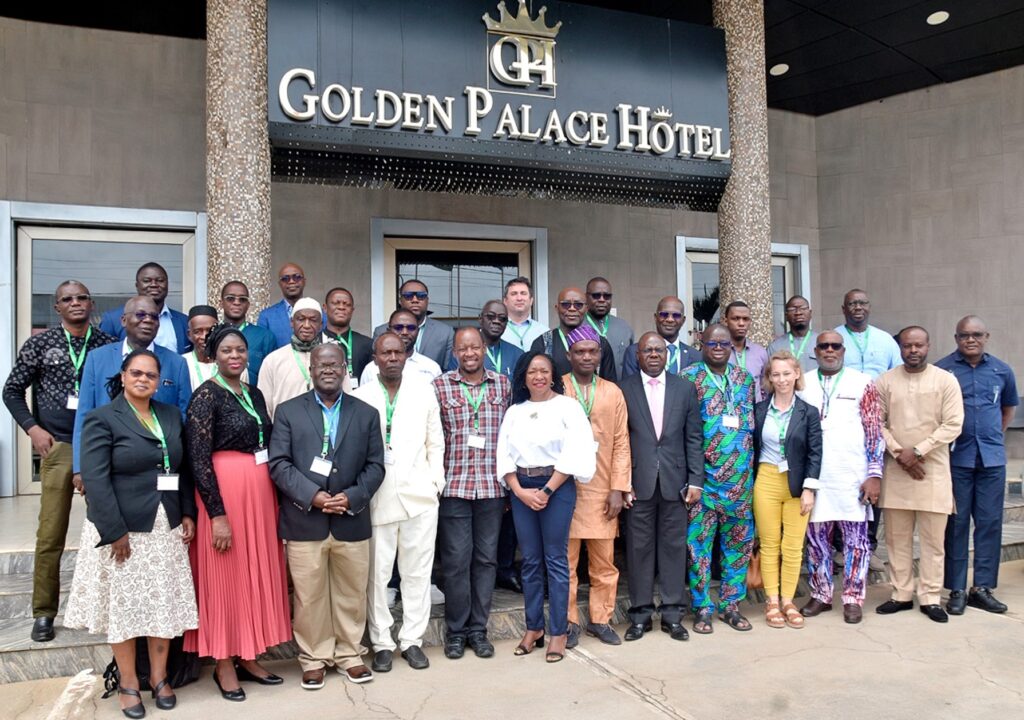
Participants to the pesticide management at the beginning of the workshop in Grand Bassam, Côte d’Ivoire.
The gathering took time to share experiences and lessons and share best practices that are adaptable to the sub-region, to contribute to a sustainable pesticides management for both food security and safety attainment.
High on the agenda was also the use of drones in pesticides application use, an advanced method among many technological advances and applications in the agricultural sector.
“[Drones] offer more benefits and opportunities such as more precise and effective with GPS-guided applications, access to difficult areas, reduce operator exposure, likely reduce drift, potentially easier implementation of mode of action, potential lower cost…” says an extract from CropLife International on the assessment for drone use in pesticide application.
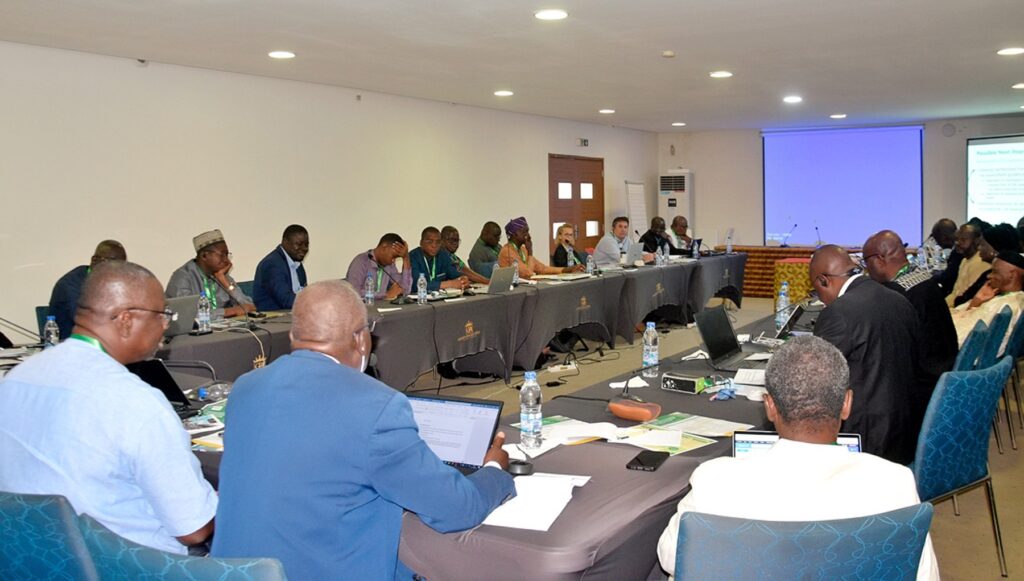
Discussions underway among experts, at the Grand Bassam, Cote dÍvoire.
Among the recommendations from the meeting was the need to identify experts for continuous for regulatory support on exposure assessment and provision of support for regional policy to ensure that Personal Protective Equipment is both availability and affordable.
The gathering also offered an opportunity for practical discussions on how the subregion can enhance the capacity of regulatory authorities on regulatory issues, among many key needs of the continent.
The participants comprised of national and regional regulatory and/or registration officers, representatives of regional organizations including Inter-African Phytosanitary Council of the African Union (AU-IAPSC).
